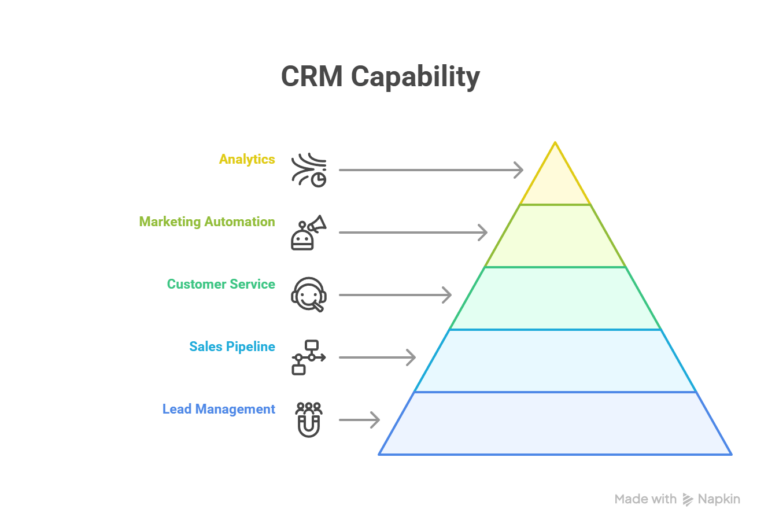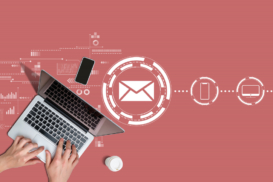Greetings! I'm Aneesh Sreedharan, CEO of 2Hats Logic Solutions. At 2Hats Logic Solutions, we are dedicated to providing technical expertise and resolving your concerns in the world of technology. Our blog page serves as a resource where we share insights and experiences, offering valuable perspectives on your queries.

Quick Summary
ERP manages your entire business operations (inventory, finance, HR), while CRM focuses on customer relationships and sales. Small businesses often start with CRM, then add ERP as they grow. Choose ERP if you need operational control, CRM if you need sales growth, or both if your budget allows integration.
Are you torn between ERP and CRM for your growing business?
Every week, thousands of business owners face this exact dilemma. Your current spreadsheets aren’t cutting it anymore. Your team keeps asking for better tools. But with software budgets tight, choosing wrong could cost you months of productivity and thousands of dollars.
Here’s the thing: ERP and CRM solve completely different problems. Pick the wrong one, and you’ll still be struggling with the same issues six months from now.
This guide cuts through the marketing fluff to give you straight answers. By the end, you’ll know exactly which system your business needs right now.
What Is ERP (Enterprise Resource Planning)?
ERP is your business’s central nervous system. It connects all your core operations into one unified platform.
Think of ERP as the master controller that tracks everything happening in your business. When a customer places an order, ERP automatically updates your inventory, triggers billing, schedules production, and notifies shipping.
Core ERP Functions:
- Financial Management: Accounting, budgeting, and financial reporting
- Inventory Control: Stock levels, purchasing, warehouse management
- Human Resources: Payroll, employee records, time tracking
- Manufacturing: Production planning, quality control, supply chain
- Project Management: Resource allocation, timeline tracking
Who Uses ERP Systems:
Manufacturing companies with complex production processes typically benefit most from ERP. Distributors managing large inventories also see major improvements. Service companies with multiple departments often choose ERP to streamline operations.
What Is CRM (Customer Relationship Management)?
CRM is your customer relationship powerhouse. It organizes every interaction with prospects and customers in one place.
Imagine having a personal assistant who remembers every conversation with every customer. That’s essentially what CRM does for your sales and marketing teams.
Primary CRM Capabilities:

- Lead Management: Capturing and nurturing potential customers
- Sales Pipeline: Tracking deals from prospect to close
- Customer Service: Support tickets, issue resolution, satisfaction tracking
- Marketing Automation: Email campaigns, social media management
- Analytics: Sales performance, customer behavior insights
Ideal CRM Users:
Sales-driven businesses see the biggest CRM impact. This includes real estate agencies, insurance companies, consulting firms, and retail businesses focused on customer retention.
Professional service firms often choose CRM first because maintaining client relationships directly impacts revenue.
ERP vs CRM: Side-by-Side Comparison
| Feature | ERP | CRM |
| Primary Purpose | Manage internal operations | Manage customer relationships |
| Main Users | Operations, finance, HR teams | Sales, marketing, customer service |
| Average Cost | $150-500 per user/month | $20-100 per user/month |
| Implementation Time | 6-18 months | 1-3 months |
The key difference is focus. ERP looks inward at your operations. CRM looks outward at your customers.
ERP asks: “How efficiently are we running our business?”
CRM asks: “How well are we serving our customers?”
Most successful businesses eventually need both. But your current priorities determine which to implement first.
When Does Your Business Need ERP?
Your business is ready for ERP when internal operations become your biggest bottleneck.
Warning Signs You Need ERP:
- Inventory Nightmares: You’re constantly running out of popular items or sitting on dead stock
- Financial Confusion: Creating monthly reports takes days because data lives in multiple spreadsheets
- Department Silos: Sales promises delivery dates without checking with production
- Compliance Stress: Industry regulations require detailed audit trails that you can’t easily produce
Business Size Indicators:
Companies with 50 + employees typically see strong ERP returns. Manufacturing businesses often need an ERP earlier, around 25-30 employees.
Industry Considerations:
Manufacturing, distribution, and healthcare companies often prioritize ERP due to regulatory requirements and complex operations.
Food and beverage companies need ERP for lot tracking and expiration date management. Construction firms use ERP for project costing and resource allocation.
When Should You Choose CRM Instead?
Choose CRM when customer relationships drive your revenue growth.
Sales-Focused Business Indicators:
- Long Sales Cycles: Your deals take months to close and involve multiple touchpoints
- Repeat Customers: Customer lifetime value matters more than one-time transactions
- Team Selling: Multiple people interact with the same prospects and customers
- Growth Goals: You’re focused on acquiring new customers or expanding existing accounts
Growth Stage Considerations:
Startups and small businesses under 25 employees often benefit more from CRM than ERP. The customer acquisition focus typically outweighs operational complexity at this stage.
Service-based businesses like agencies, consultancies, and professional services usually choose CRM first because client relationships directly impact revenue.
Can You Use Both ERP and CRM Together?
Yes, and many successful businesses do exactly that.
Integration Possibilities:
Modern ERP and CRM systems can share data seamlessly. When a salesperson closes a deal in CRM, it automatically creates orders in ERP. When ERP ships products, CRM updates the customer record.
This integration eliminates double data entry and keeps everyone working with the same information.
When Integration Makes Sense:
- Revenue Over $5 Million: You have a budget for both systems and complexity that justifies the investment
- Hybrid Operations: You manufacture products but also focus heavily on customer relationships
- Mature Processes: Your teams are comfortable with current software and ready for advanced tools
Budget Considerations:
Plan for $500-1,500 per month for integrated ERP/CRM systems in small to medium businesses. Factor in implementation costs of $10,000-50,000, depending on complexity.
Popular Options for Small-Medium Businesses
| System Type | Budget Option | Mid-Range Option | Premium Option |
| ERP | Zoho Books ($15/month) | NetSuite ($99/month) | SAP Business One ($68/month) |
| CRM | HubSpot Free ($0) | Salesforce Essentials ($25/month) | Pipedrive ($15/month) |
| Integrated | Zoho One ($37/month) | Microsoft Dynamics ($95/month) | Oracle NetSuite ($99/month) |
Budget options work well for businesses under 20 employees. Mid-range solutions fit companies with 20-100 employees. Premium options suit larger organizations with complex needs.
Ready for a Custom ERP or CRM Solution?
Making the Final Decision
Use this decision framework to choose the right system for your business.
Key Questions to Ask:
- What’s your biggest daily frustration? If it’s operational chaos, choose ERP. If it’s lost sales opportunities, choose CRM.
- Where do you spend most of your time? If you’re constantly putting out operational fires, ERP helps. If you’re chasing leads and managing customers, CRM fits better.
- What’s your primary business goal this year? Growth goals often point to CRM. Efficiency goals typically indicate ERP needs.
- What’s your realistic budget? CRM generally costs less and implements faster than ERP systems.
Getting Team Buy-In:
Involve key users in the selection process. Demo systems with your actual data when possible. Address concerns about change management upfront.
Set clear expectations about implementation timelines and training requirements. Plan for a 2-3 month adjustment period regardless of which system you choose.
Conclusion
The ERP vs CRM decision boils down to your immediate priorities. Choose ERP if operational efficiency is holding back your business. Choose CRM if customer relationships drive your growth.
Most successful businesses eventually use both systems. But starting with your biggest pain point gives you the fastest return on investment.
Your Next Steps:
- Identify Your Priority: Operations (ERP) or customers (CRM)?
- Set Your Budget: Include software, implementation, and training costs
- Demo 2-3 Options: Test systems with your real business data
- Plan Implementation: Allow 3-6 months for full deployment
- Train Your Team: Invest in proper user training for adoption success
Remember, the best system is the one your team uses. Choose based on your current needs, not future possibilities you might never reach.
The right choice will transform how your business operates. The wrong choice will leave you exactly where you started, just with a bigger software bill.
Take action now. Your competitors already are.
FAQ
Which companies need both ERP and CRM?
Manufacturing companies with direct sales channels, distributors with customer service focus, professional services with complex project management, and retail businesses with inventory and customer loyalty programs typically benefit from both systems.
What's the main difference between ERP and CRM?
ERP manages internal operations (inventory, finance, HR, production). CRM manages external relationships (leads, customers, sales, marketing). ERP looks inward, CRM looks outward.
What does ERP and CRM stand for?
ERP stands for Enterprise Resource Planning. CRM stands for Customer Relationship Management. ERP manages your internal business operations, while CRM focuses on customer interactions and relationships.
How do ERP and CRM integration work?
ERP and CRM integration shares data automatically between systems. When sales closes a deal in CRM, it creates orders in ERP. When ERP ships products, CRM updates customer records. This eliminates double data entry and keeps information synchronized.
Table of contents
- What Is ERP (Enterprise Resource Planning)?
- What Is CRM (Customer Relationship Management)?
- ERP vs CRM: Side-by-Side Comparison
- When Does Your Business Need ERP?
- When Should You Choose CRM Instead?
- Can You Use Both ERP and CRM Together?
- Popular Options for Small-Medium Businesses
- Making the Final Decision
- Conclusion

Related Articles







